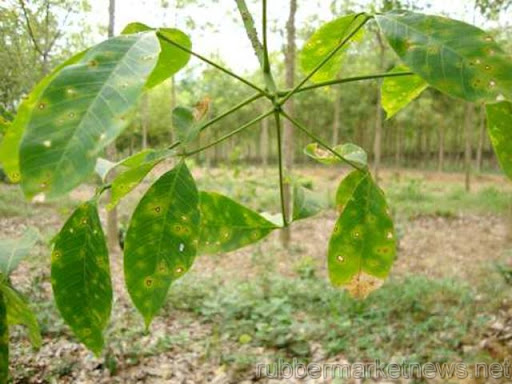 * About 50,000 tonnes delayed, more possible
* About 50,000 tonnes delayed, more possible
* Physical prices up 1.8%; Tokyo bounces from low
* Flooding could aggravate already-tight supplies
* Prices to remain high on tight supply (Adds comments, market background)
By Apornrath Phoonphongphiphat
BANGKOK, March 31 (Reuters) - Severe floods in southern Thailand have delayed at least 50,000 tonnes of rubber shipments from the world's top producer and exporter, worsening the physical market tightness and sparking a rebound in Tokyo futures.
Extended flooding, which has forced railways to suspend services, cut off roads and shut three airports, could delay up to half of Thailand's rubber exports and exacerbate the shortage during the typically dry, low-production season and ahead of Thailand's Songkran festival holidays in mid-April.
"At least 50,000 tonnes of rubber had to be delayed and I expect more could be delayed if the floods persist longer than expected," Luckchai Kittipol, president of the Thai Rubber Association, told Reuters on Thursday.
Thailand's southern provinces produce about 90 percent of the country's annual rubber output of 3.2 million tonnes. Late last year, shipments of 50,000 tonnes of Thai RSS3 grade were also delayed by chest-high floods in the growing area.
Farmers normally stop rubber tapping this time of year but erratic weather and unseasonal rains have forced some rubber producers to temporarily shut factories. Farmers usually resume tapping in mid-April and supply could return to normal by May.
"But this time we are not quite sure how long the flood will persist. If it lasts longer, we may need to delay up to 50 percent of our normal monthly exports," Luckchai said, referring to around 200,000 tonnes of Thailand monthly rubber exports.
Physical rubber prices, which have jumped to records this year fueled by demand from Chinese automakers, were firm on Thursday. The free-on-board (FOB) price of the benchmark Thai RSS-3 grade rubber rose to $5.80 per kg, up 1.8 percent from Wednesday.
"We saw the first spike in rubber prices around October to November. I think the similar kind of impact will likely repeat itself this time around, coupled with the fact it's wintering season," said Ker Chung Yang, an analyst at Phillip Futures Pte in Singapore.
"We are likely to see further disruptions in transportation. By then, we are likely to see further run-up in rubber prices."
The benchmark Tokyo rubber futures contract for September delivery, which sets the global trend, bounced from an intraday low around 422.5 yen a kg before settling at 432.2 yen, up 2.1 yen from previous settlement.
"The floods are real, however, I believe the disruption will be temporary," said a physical dealer in Singapore who mainly trades Indonesian grade rubber.
"Let's say two weeks or so. There's a big price differential between SMR20, STR20 and SIR20 already. So I think buyers will switch if they can't get material from Thailand."
<^^^^^^^^^^^^^^^^^^^^^^^^^^^^^^^^^^^^^^^^^^^^^^^^^^^^^^^^^^
For ANRPC world rubber forecast, click [ID:nL3E7ES15T]
For IRSG raises global rubber demand, click [ID:nL3E7EB118]
^^^^^^^^^^^^^^^^^^^^^^^^^^^^^^^^^^^^^^^^^^^^^^^^^^^^^^^^^^^
In Indonesia, the world's second-biggest producer, production has also dropped significantly as its main rubber areas have been hit by heavy rain, which disrupts tapping.
The floods and mudslides in southern Thailand have killed 16 people, authorities said on Thursday, as rain began to subside. Local officials warned of more possible mudslides.
Trains to the region remained suspended and an airport in Nakhon Si Thammarat province was still shut. Two airports resumed services, including one on Koh Samui, a resort island popular with Thai and foreign tourists.
A mudslide in Krabi province on Wednesday killed at least three people and injured 39. Six remained missing. Mudslides were reported in three other areas but there was no report of casualties.
PRICES TO STAY HIGH
With seasonal supplies tight and shipments disrupted at a time of strong demand, physical rubber prices were expected to stay at relatively high levels, traders said.
"Global rubber supplies do not exceed demand so I don't think (physical) prices will drop to even TOCOM (futures) prices, which influence cash rubber prices," Luckchai said.
World rubber output was forecast at 10 million tonnes in 2011, while demand was forecast at the same level, he added.
TOCOM prices were forecast to stay at firm levels after passing through a corrective phase following recent rallies, dealers said.
No comments:
Post a Comment